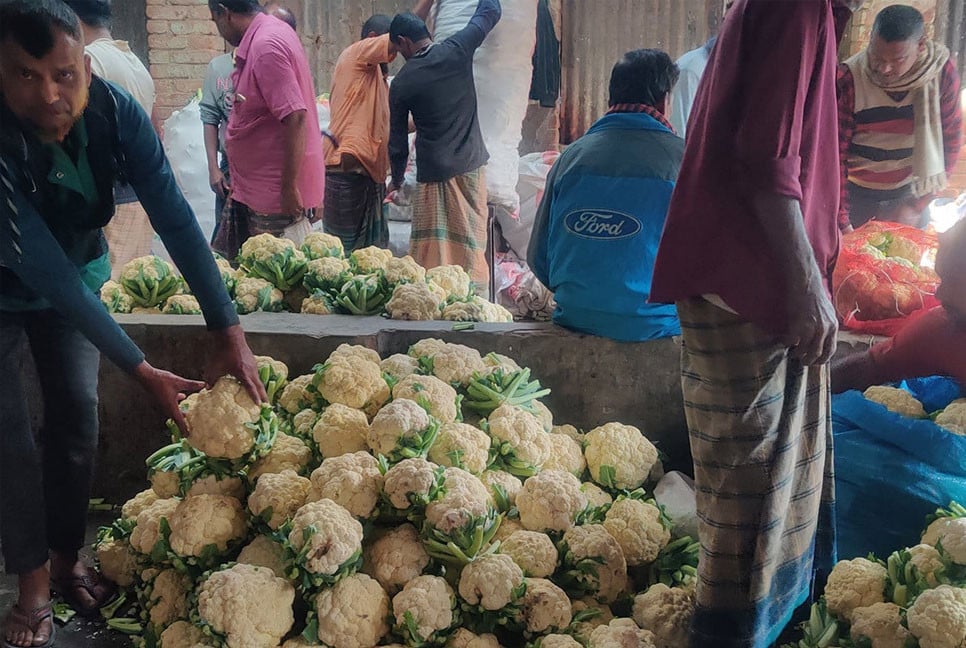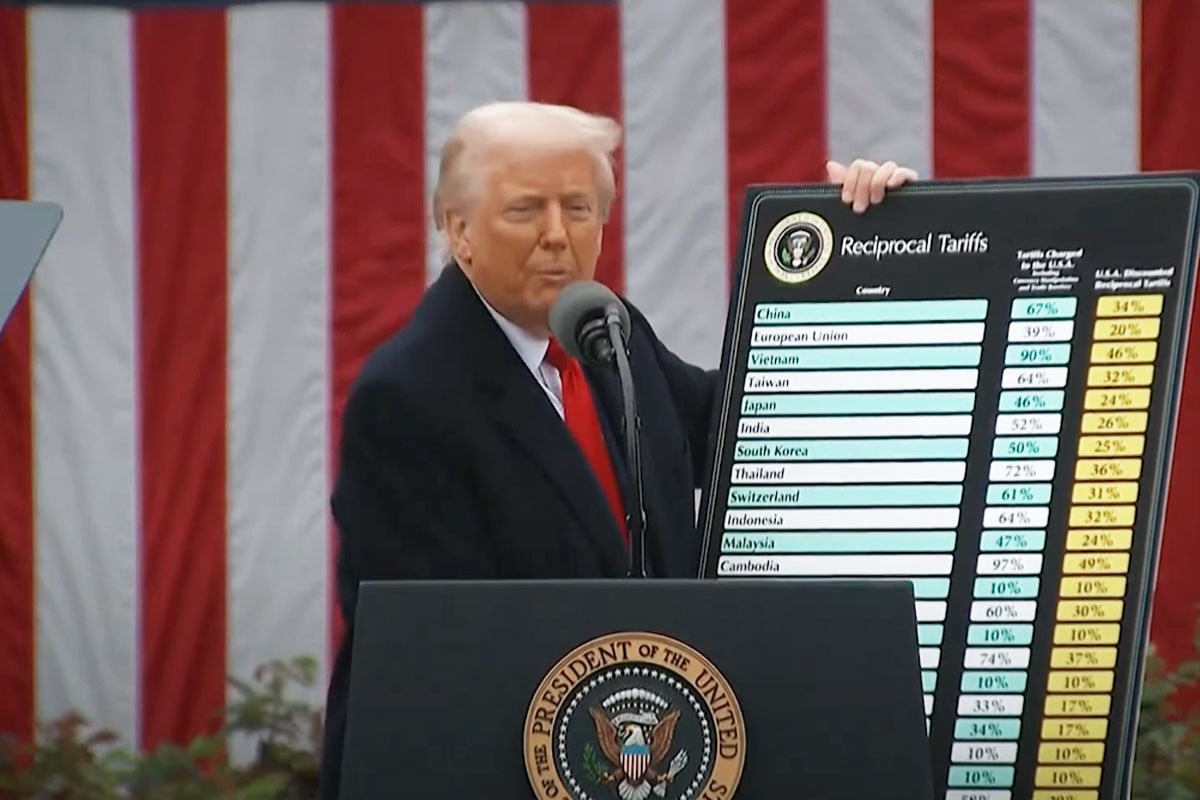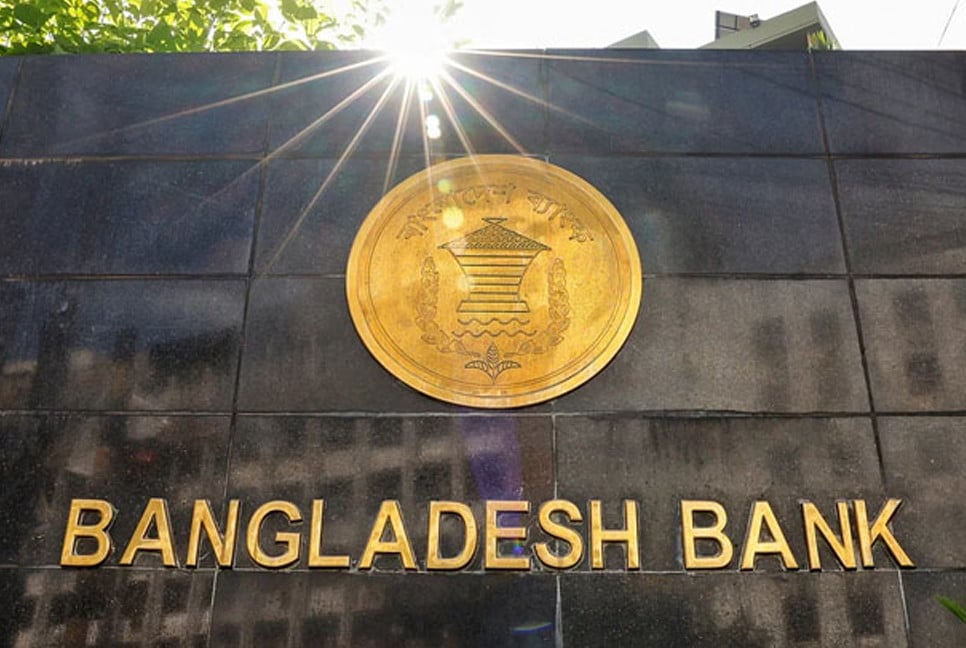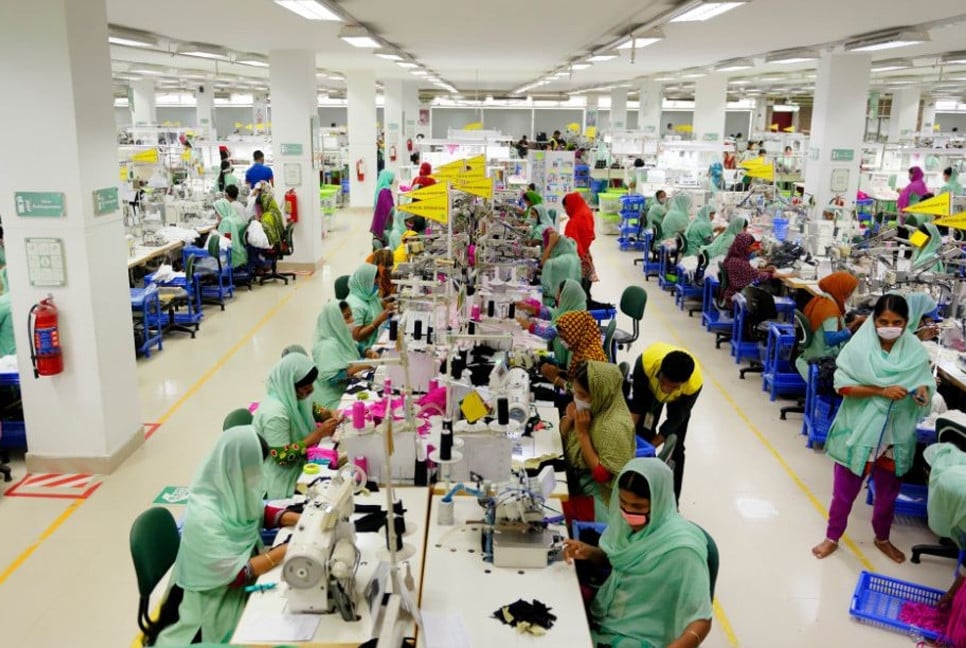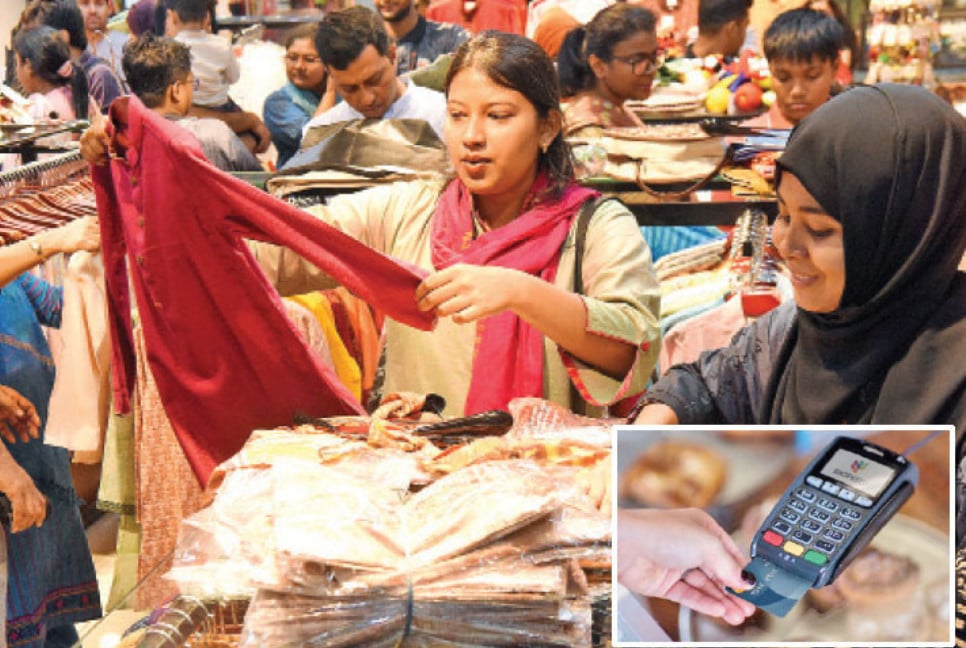The prices of winter vegetables in Gaibandha have fallen dramatically, bringing much-needed relief to consumers. Vegetables that were once priced as high as Tk 400 per kg, like green chillies, are now being sold for as little as Tk 30 per kg. Similarly, cauliflower, previously priced at Tk 120, is now available for just Tk 3 to Tk 5 per kg. This sharp drop in prices is attributed to an unexpected surge in vegetable production in the district, leading to an oversupply in local markets.
Just two weeks ago, the price of green chillies ranged from Tk 300 to Tk 400 per kg, but now, with the winter harvest in full swing, the price has dropped to Tk 30 to Tk 35 per kg. Other vegetables have also seen significant reductions. Cauliflower, which once sold for Tk 120, now costs only Tk 3 to Tk 5, while onions, priced at Tk 200, are now available for Tk 40. Even potatoes, once sold at Tk 150 per kg, are now down to Tk 35.
This dramatic price reduction is a result of an oversupply of winter vegetables in Gaibandha, with production levels far exceeding market demand. While consumers are benefiting from lower prices, local farmers are struggling to make a fair return on their crops.
During a recent visit to Gaibandha’s markets, shoppers were greeted by an abundance of fresh winter vegetables. Stalls were brimming with colorful displays of cabbages, cauliflower, green chillies, and a wide variety of other vegetables. Shamsujjoha Sarkar, a shopkeeper at the city’s old market, explained that the dramatic drop in prices was due to the oversupply of vegetables.
According to Sarkar, cauliflower is now priced between Tk 3 to Tk 5 per kg, depending on quality. He pointed out that the low-lying geography of Gaibandha often results in a surplus of vegetables during this time of year, and combined with the bumper harvest, the oversupply has pushed prices to rock-bottom levels.
Jullu Mia, another local retailer, echoed the sentiment, noting that vegetable prices have been steadily falling as supply continues to grow. For example, cauliflower, which was priced between Tk 8 to Tk 10 per kg just a day earlier, is now available for as little as Tk 3 to Tk 5 per kg.
However, despite the benefits to consumers, farmers are feeling the strain of the price plunge. Ruhul Amin, a farmer from Katihara in Sadar Upazila, expressed his frustration, stating that although production levels are high, the prices being offered for the vegetables are too low to cover the cost of production. With no increase in the cost of growing the crops, farmers are incurring significant losses.
While consumers, like Rafiqul Alam, a retired bank officer, are pleased with the affordability of winter vegetables, the situation is far from ideal for many farmers. The sharp price drop has made it increasingly difficult for them to cover production costs, and many worry that they may not be able to make a reasonable profit from their hard work.
Khorshed Alam, deputy director of the Gaibandha Agricultural Extension Department, explained that the district had exceeded its winter vegetable planting target this season, aided by favorable weather conditions. However, the resulting oversupply has left farmers with little chance of receiving fair prices for their crops.
While vegetable prices continue to fluctuate, other staple goods such as rice, meat, fish, eggs, and spices have remained relatively stable, offering a sense of balance in the overall market environment.
In conclusion, while the steep decline in vegetable prices provides much-needed relief for consumers in Gaibandha, the situation is proving challenging for local farmers. With an oversupply in the market, farmers are struggling to cover production costs and may face significant losses if prices remain this low for an extended period.
Translated by: Jisan Al Jubair
Bd-pratidin English

